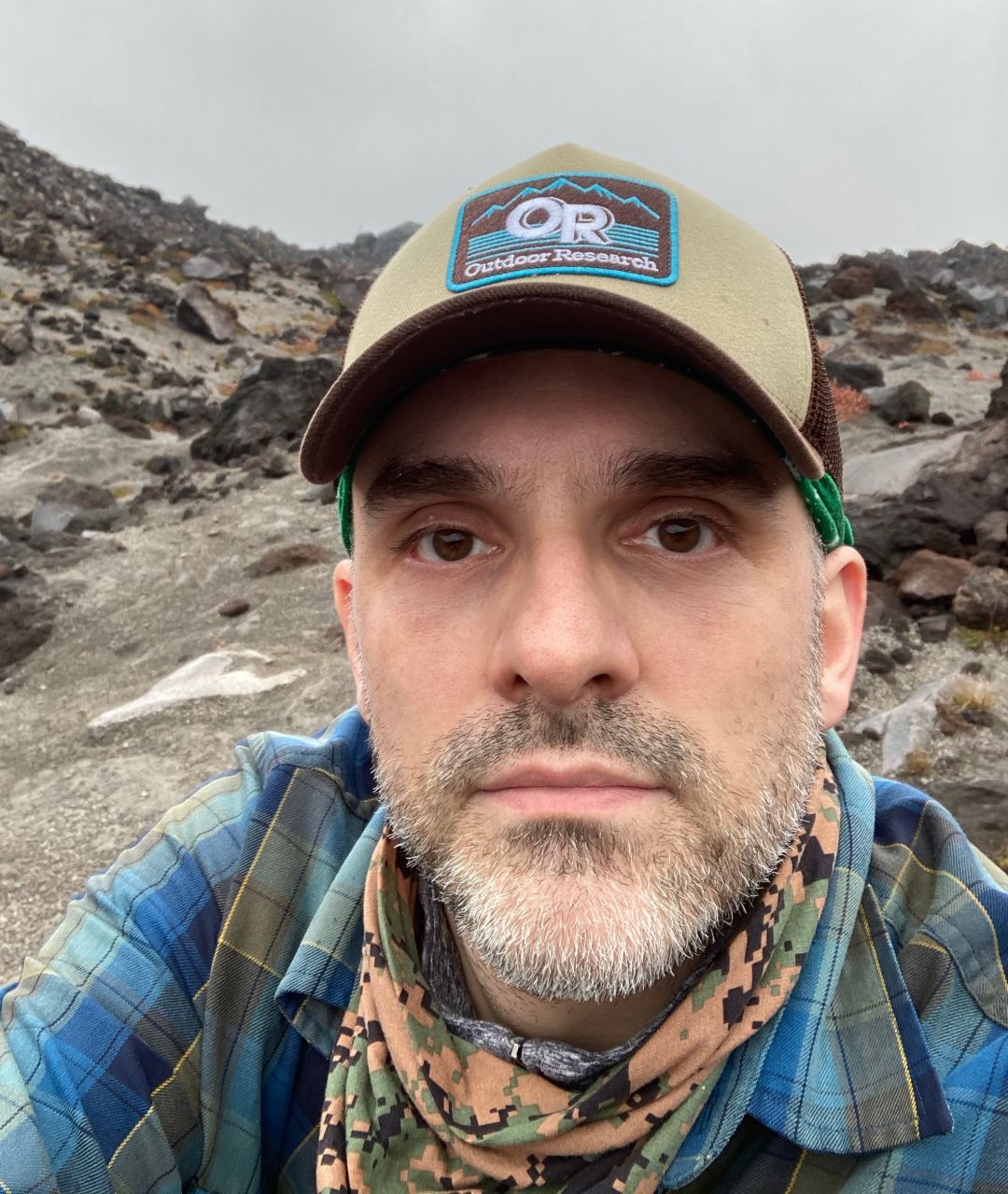From Patient to Peer

Geoff Moser’s personal experiences from addiction to recovery allow him to “walk in the shoes” of those who now look to him for guidance and support.
Image: Courtesy Kaiser Permanente
Geoff Moser’s addiction to alcohol and drugs cost him his marriage, friendships, jobs, educational dreams — and nearly his life. Hitting rock bottom after 19 years of substance use, he saw no hope for the future.
Then, he “finally agreed to go into treatment” (his words) and spent 13 months in Kaiser Permanente’s Intensive Outpatient Program. He suffered a relapse 5 months into the program, but he’s now proud of his sobriety date: June 25, 2015.
Today, the 43-year-old is living a happy life, filled with wonderful relationships and a job he loves. Ironically, his former counselor at Kaiser Permanente saw his gift for connecting with people and suggested that he become a counselor or a peer support specialist. She describes Moser as “insightful, motivated, and approachable” and adds, “He has a way of meeting people where they are, which is such an important skill for someone in a peer support role.”
Ultimately, Moser plans on going back to college. But in the meantime, he has earned a Peer Support Specialist/Certified Recovery Mentor certificate that requires at least 2 years of sustained sobriety.
His first jobs were with local nonprofits, where he worked with youths and houseless people involved in the justice system. Then, 6 months ago, he began providing peer support to Kaiser Permanente members, who, like him, are all too familiar with the daily struggle to remain sober.
Coming full circle
“My previous roles, such as a crisis peer specialist in Clackamas County, were rewarding,” says Moser. “But when the chance to come full circle with Kaiser Permanente came up, I jumped at the opportunity. Kaiser saved my life, and I want to do everything I can to support others who are in the same situation I was.”
As with the other 5 peer support specialists in Kaiser Permanente’s Addiction Medicine Program, Moser works with multiple programs located primarily at the Brookside Center residential facility in Clackamas, Oregon, and the outpatient program at East Interstate medical campus in Portland. He uses his education and training to support people who are receiving care, those who need care, or those who are just coming out of care. And his personal experiences from addiction to recovery allow him to “walk in the shoes” of those who now look to him for guidance and support.
Paul Bryant, director of Kaiser Permanente’s Addiction Medicine Program, says peer support helps with the beginning, middle, and end of one’s journey. It often starts with struggling to engage with the process and achieve abstinence. Next, a person receiving treatment must be open to learning the necessary skills, followed by making the transition from treatment to ongoing recovery.
And Moser is with them every step of the way.
His primary role is making one-on-one connections with patients—also called peers—to help normalize the experience of going through treatment, says Bryant: “He listens to their stories and helps guide them through the resources they need.”
Power of the peer
What Moser brings to the relationship is valuable. If a peer doesn’t know where to receive counseling, Moser supports them in making the right connections. If someone feels uncomfortable sharing their personal story with a group, he provides other options. If someone is into physical fitness, he tells them about a gym that offers on-site sobriety support groups.
“As a peer support specialist, I’m a living example of someone who has found meaning in life without substances,” says Moser. “I’m happier now than I ever was, and I want to share this gift with others. I tell peers that I found a way to make sobriety work for me, and I offer some ideas they can carry out themselves. Putting a face to what they hear in treatment is priceless.”
And his peers agree. One person wrote, “My Peer Support Specialist has been a great guide with great empathy and an ability to relate his own experiences with mine. Given that my therapy with Kaiser has been only digital due to the pandemic and limited one-on-one interaction with fellow participants, it was great being able to engage with the peer specialist who understood my dark thoughts. I'm truly grateful to have met Geoff Moser. Thank you.”
To learn more about Kaiser Permanente’s addiction medicine team, go to kp.org/addiction/nw.




